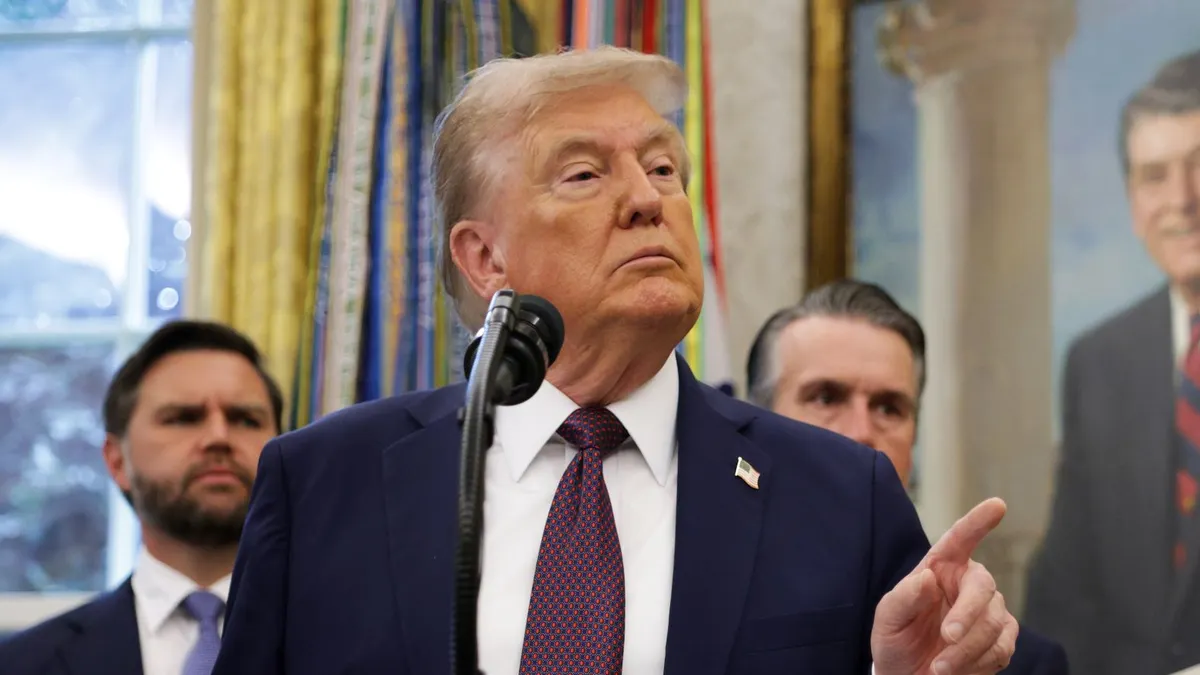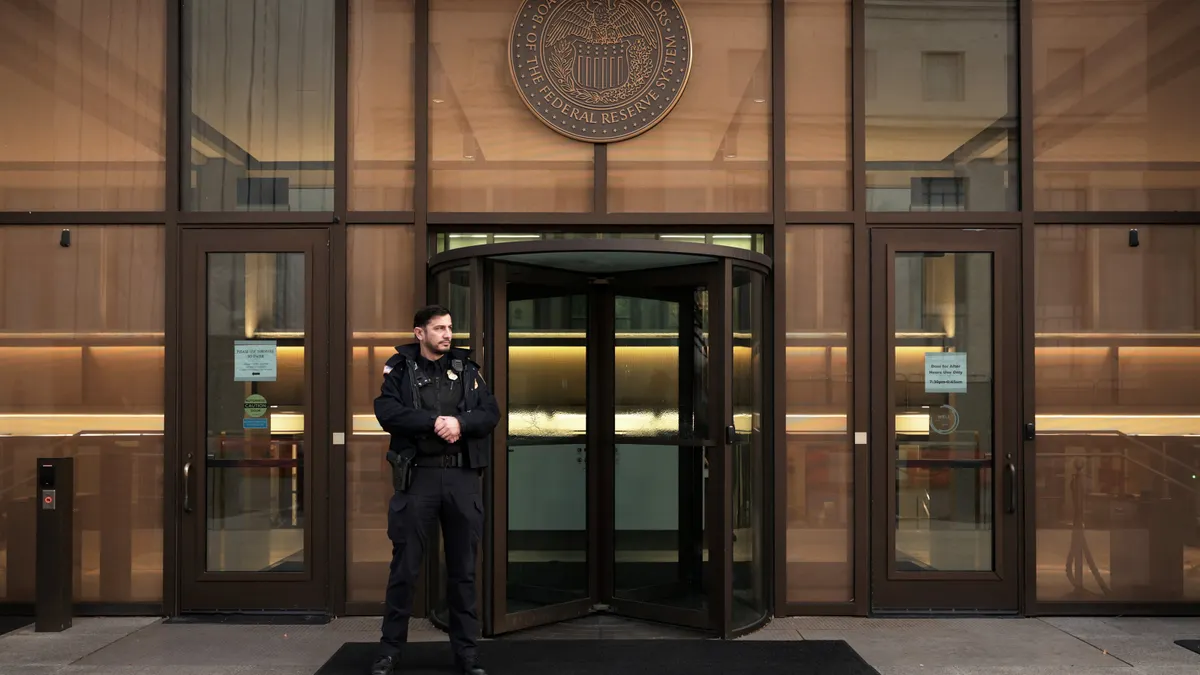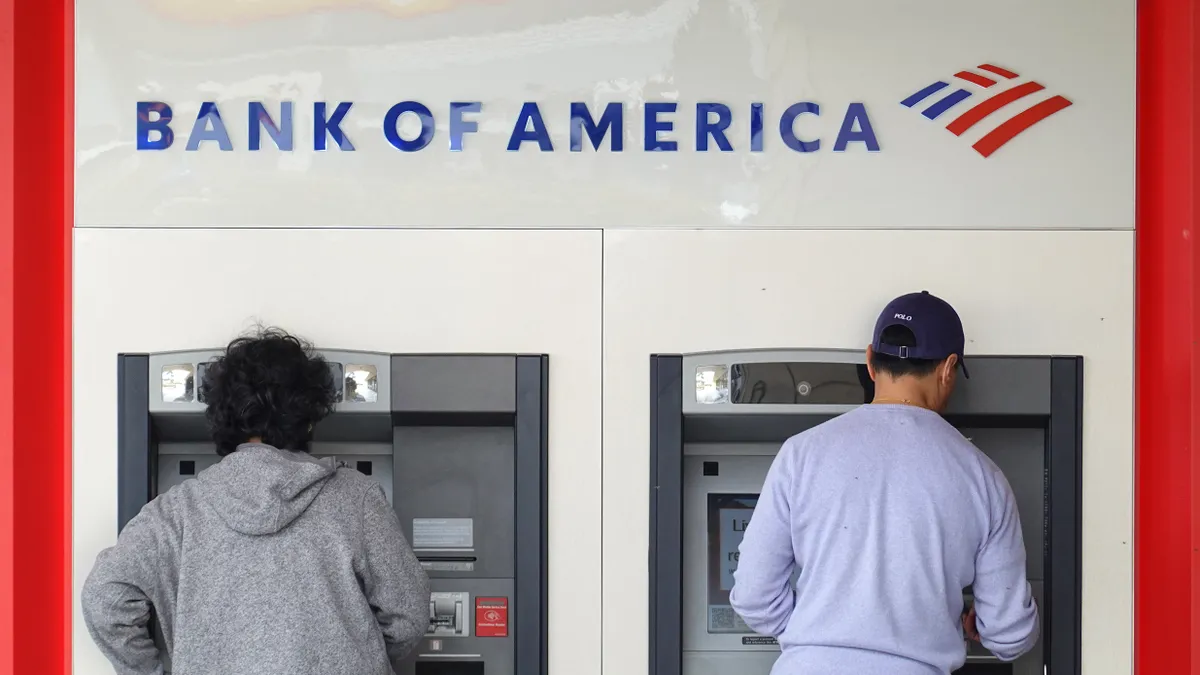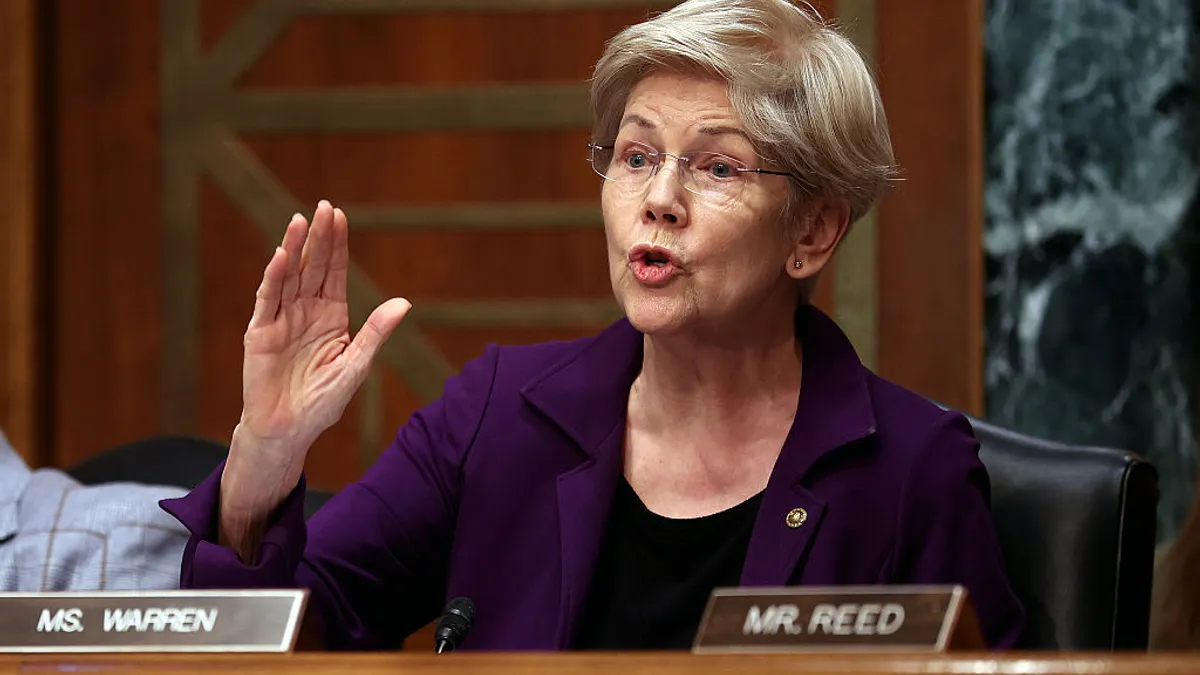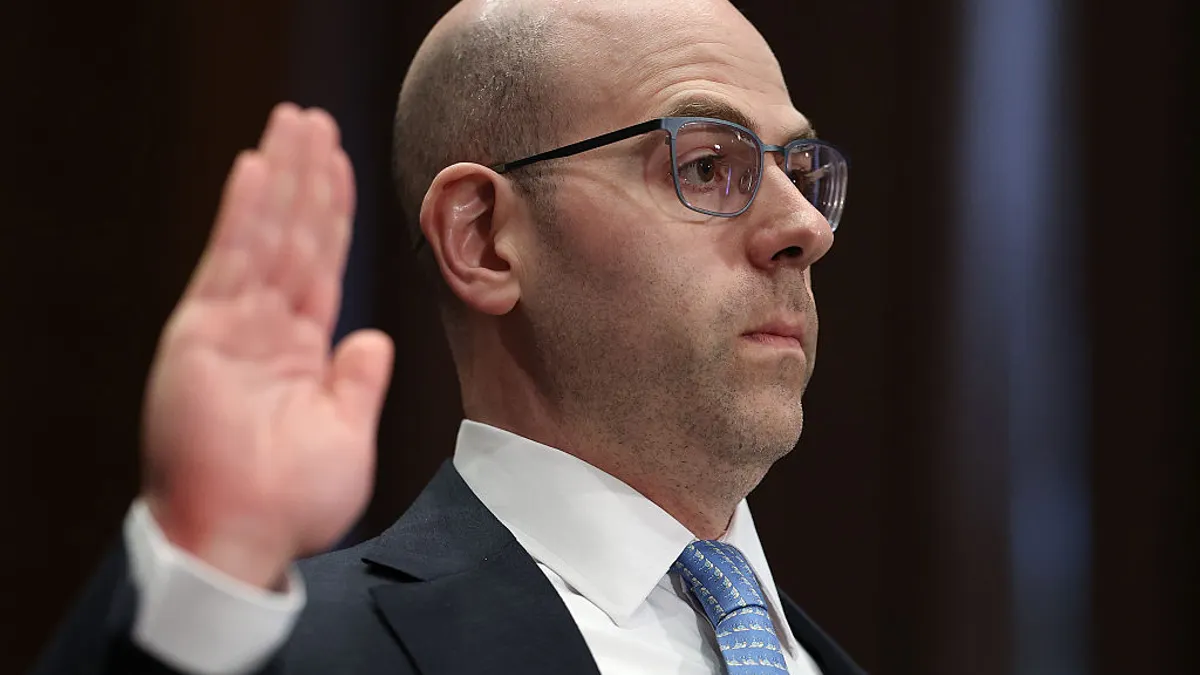President Donald Trump is asking an appeals court – by Monday – to stay a district judge’s ruling allowing Federal Reserve Gov. Lisa Cook to continue working for the central bank.
If granted by Trump’s preferred deadline, Cook could be blocked from voting Tuesday with the Federal Open Market Committee to set the interest rate.
Trump has habitually vocalized his displeasure with the Fed’s reluctance to lower the rate – focusing much of his attention on Fed Chair Jerome Powell. The Trump administration arguably – and unsuccessfully – used an over-budget renovation at the Fed to pressure Powell to resign.
Another Fed governor, Adriana Kugler, stepped down last month – and Trump swiftly nominated Stephen Miran, the chair of the White House’s Council of Economic Advisers, to finish Kugler’s term. The full Senate is set to vote Monday on whether to confirm Miran.
Trump attempted to fire Cook in late August over allegations of mortgage fraud. Cook sued Trump to block the firing, and a district judge Tuesday ordered the Fed to let Cook stay on.
If the three-judge panel at the Court of Appeals for the D.C. Circuit denies Trump the stay he wants, he may take the case to the Supreme Court.
If the stay is granted, however, it could “potentially plunge the FOMC’s vote into turmoil,” Cook’s lawyer, Abbe Lowell, wrote Thursday in a court filing.
“In addition, it has the real potential of impacting domestic and foreign markets,” Lowell wrote.
Trump has spoken openly about his aim to secure enough votes to lower the interest rate. Two Fed governors – Vice Chair for Supervision Michelle Bowman and Gov. Christopher Waller, both Trump appointees – dissented in July with the FOMC’s decision to keep interest rates steady. Miran, if confirmed, would likely represent a third vote (out of a maximum of 12). Cook’s absence Tuesday could take away from potential opposition.
Powell, however, primed the market last month for a coming interest rate cut, which is widely expected next week.
Cook, for her part, requested a Sept. 18 deadline to file a response to Trump’s request for a longer-lasting stay pending appeal.
Judge Jia Cobb of the U.S. District Court for the District of Columbia worked through several points of contention in Cook’s case against Trump on Tuesday, including whether the president met the threshold of “cause” necessary to fire the Fed governor, and whether or not Cook received sufficient notice of her dismissal.
For one, Cobb noted that Cook’s mortgage issue stems from paperwork submitted in 2021 – but Cook joined the Fed in 2022.
Trump’s lawyers, in their brief to the appeals court Thursday, said Cobb “erroneously held that the President lacked statutory authority to consider Cook's actions at all because they occurred before she took office.”
"If Congress had wanted to limit cause to only in-office conduct, it easily could have drafted language to that effect, as it has done in other statutes,” Trump’s lawyers wrote.
The Justice Department, arguing for Trump, noted that the district court acknowledged there could be situations under which a Fed governor's prior conduct could serve as cause – for example, if a Fed governor were convicted of a past crime.
That "acknowledgment … underscores that pre-office misconduct is not categorically off limits," Trump’s lawyers wrote to the appeals court. "And once it is agreed that the President may properly remove a Governor based on such misconduct, the district court had no authority to inquire further."
Trump’s team consistently argued, in the district court case, that Cook “offered no defense” against the mortgage fraud allegations, and that the president dismissed her five days after the allegations came to light, once “it was clear that no adequate response was forthcoming.”
The DOJ continued that argument in its appeal, asserting that Cook failed to offer a “contrary explanation” as to why she allegedly took out two mortgages, weeks apart, and listed each as a “principal residence.”
“Cook does not allege that she sought to offer any evidence to the President or anyone else that would explain her actions, either after the President first called on her to resign, or even through this litigation,” DOJ lawyers wrote.
Lowell, in a filing with the district court, asserted Cook “did not ever commit mortgage fraud” and argued the paperwork snafu may have represented a “clerical error.”
Lowell said Tuesday that Cobb’s ruling “reaffirms the importance of safeguarding the independence of the Federal Reserve from illegal political interference.”
But Trump’s team, in Thursday’s appeal, argued that allowing the president to remove Cook “should strengthen, not diminish, the Federal Reserve’s integrity.”
However, the back-and-forth over Cook’s status also stands as a disruption, Trump’s lawyers said.
"The President and the government are … unquestionably harmed when a removed officer is reinstated and continues to serve notwithstanding the President's removal," they wrote.


